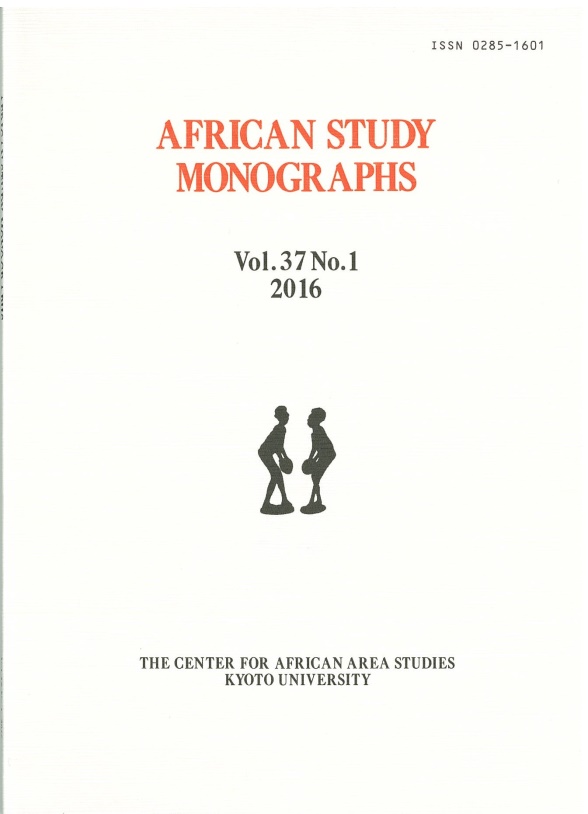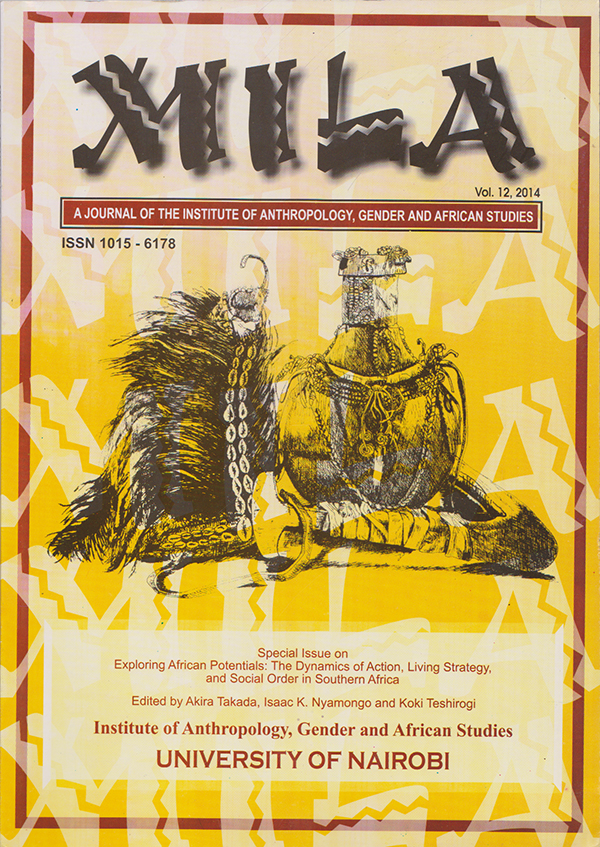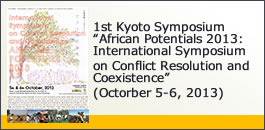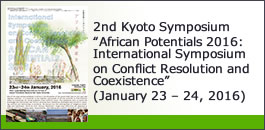Date: Nov. 17, 2012
Venue: Kyoto University Yoshida Main Campus, Research Bldg. No.2, 4th floor, Large Conference Room.
Program
10:00〜10:30 Business Meeting
10:30〜11:20 Toshimichi Nemoto(Company Executive, JATA Tours)
Mixed Settlement of Multiethnic Groups and Conflict Prevention Urban Areas
11:20~12:10 Juichi Itani (Kyoto University)
Conflicts and Resolution Measures in Rural Areas
12:10~13:00 Lunch Break
13:00~13:40 Hiroshi Nakagawa (Former Ambassador to Tanzania / Former Director-General Food Safety and Consumer Affairs Bureau, Ministry of Agriculture, Forestry and Fisheries, Japan)
Various Anxieties for Stability: Economic Growth and Retreat of Nyerere’s Dream
13:40~14:30 General Discussion
Chaired by Minako Araki (Ochanomizu University)
Abstract
After gaining independence from Britain in 1961, Tanganyika merged the People’s Republic of Zanzibar and established the United Republic of Tanzania (hereinafter Tanzania) in 1964. Julius Nyerere, who became the first president of Tanzania, advocated African Socialism based on family-like ties, or “familyhood”, in the Arusha Declaration in 1967. While creating administrative villages called ujamaa as the units, the Declaration had self-reliance and resource sharing as the centers of the policy, and included unique policies such as collective settlement, collective farms and thorough elementary education in Swahili language in order to achieve a peaceable and equal society. However, the national economy was ravaged by frequent droughts, the oil shock and civil war in Uganda in the 1970s, when the Ujamaa village policies were implemented, and consequently the policy increasingly lost its impetus. Nyerere stepped down in 1985, and the country turned its policy toward capitalist economy by acceptance of the Structural Adjustment Program in 1986.
African countries achieved independence following the “Year of Africa” one after another, and worked on self-sufficient nation building. However, the roads to food self-sufficiency and economic independence were rough with repeating political changes or ethnic conflicts caused by poverty and political instability. Thus, Tanzania found herself as the receiving country of refugees from neighboring countries. Tanzania has also gone through changes in policies and economic structures since formation of the United Republic until today. Its process involved forced resettlement and severe economic hardships, consequently leading to larger discrepancy between the reality and self-sufficient nationhood that Nyerere had idealized. However, in Tanzania, there has been no large-scale coup d’état or inter-ethnic conflict for the last half century in contrast to internal conflicts in its neighboring countries. Of course we cannot overlook armed clashes occurring between ruling and opposition parties at every general election in Zanzibar. Yet none of them have been intensified or prolonged, nor led to mass-scale religious/ethnic conflicts.
African countries started rapid economic growth in the mid-2000s after the era of economic stagnation. Its driving force was underground resources. The soaring price on crude oil and minerals on a global scale as well as the resource development race among foreign capitals resulted in flooding Africa with funds. Although one of the factors supporting economic development in Tanzania is gold mines, the industry has not benefited all of the people. In fact, price rise and city-oriented policies have strained the rural economy and even led to widening economic disparities.
With a focus on the fact that large-scale conflicts have not occurred in Tanzania for the last half century, this workshop explores the mechanism to avert conflicts in systems, disciplines, customs and policies by examining the factors from urban, rural and political perspectives. There exist local disciplines to recede daily disputes in rural communities, and we can also see unspoken rules to maintain orders among urban communities inhabited by mixed ethnic groups. Such mechanisms of maintaining orders are reflected in political bodies and policies. Assuming that there is a common concept in both macro- and micro- societies in Tanzania, what is it and how has it been developed in the history? Moreover, we will attempt to consider whether such a concept would continue its effective function even in an increasingly complicated, modern society.
Toshimichi Nemoto(Company Executive, JATA Tours)
Mixed Settlement of Multiethnic Groups and Conflict Prevention in Urban Areas
I describe how people have averted disputes and have collaborated through examining case studies, while giving an overview on the history of national formation in Tanzania. Religious, ethnic and educational systems.
Juichi Itani (Kyoto University)
Conflicts and Resolution Measures in Rural Area
Although social orders are maintained by laws and ordinances in Tanzania, rural societies have problems unsolvable by contemporary law, and they have solved such issues by their customary approaches. I will take up several issues of Tanzanian rural conflict communities, make reports on farmers’ handling of them, and consider the averting mechanisms seen in rural communities.
Hiroshi Nakagawa (Former Ambassador to Tanzania /
Former Director-General of Food Safety and Consumer Affairs Bureau, Ministry of Agriculture, Forestry and Fisheries, Japan)
Various Anxieties for Stability: Economic Growth and Retreat of Nyerere’s Dream
A “society where people are equally poor” remains stable at a low level without mounting complaints. However, from 2003 onward the global escalation of underground resource prices has brought a rapid growth in the Tanzanian economy, and has burst economic disparities to be apparent. The equal society that Nyerere dreamed about has gradually fallen back in a stream toward the economy-oriented society. I will consider whether “systems or frameworks that obviated conflicts” in Tanzania will be maintained to solve unstable factors even in globalizing conditions providing an outlook of the country’s future trends in governance.


 Exploring African Potentials, Mila Special Issue
Exploring African Potentials, Mila Special Issue
